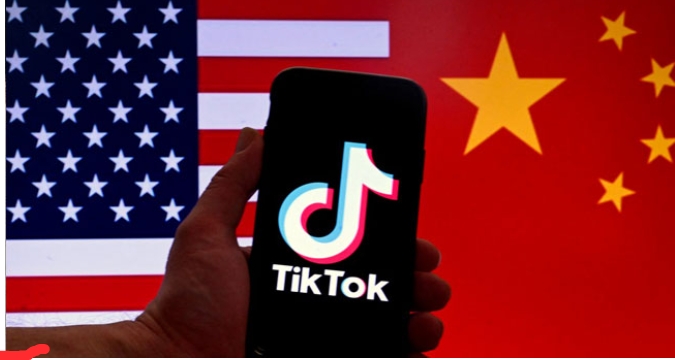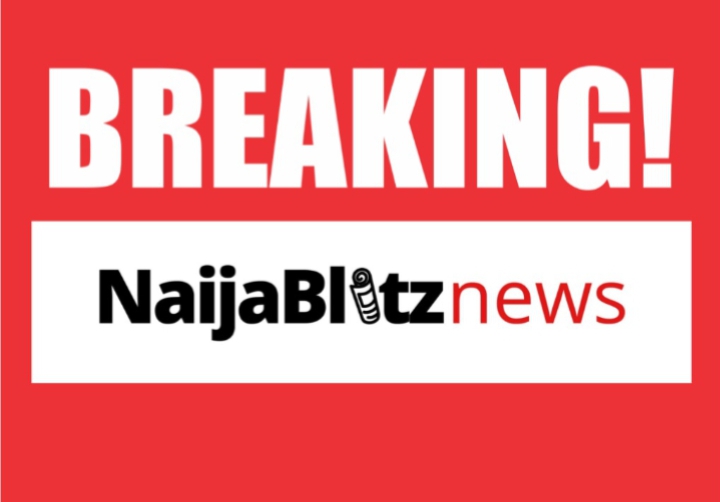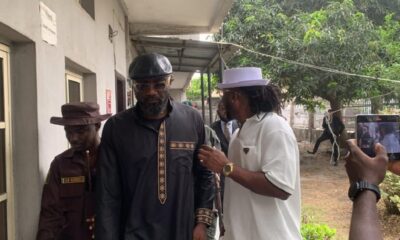News
Richest man worldwide, Musk, says “I’ve no plans to own TikTok US service”

By Kayode Sanni-Arewa
The world’s richest man, Elin Musk and a top advisor to US President Donald Trump, has said he has no interest in acquiring social media platform TikTok’s operations in the United States, in comments released Saturday.
“I’ve not put in a bid for TikTok and I don’t have any plans for what I would do if I had TikTok,” said Musk in comments made via videolink at a German forum in late January that were released on the weekend.
TikTok is facing down a US law that ordered the company broken off from its Chinese owner ByteDance or otherwise be banned in the United States over national security concerns regarding the data it gathers on users.
In one of his first acts in office, Trump ordered a pause on enforcing the law that should have seen TikTok effectively made illegal in the country a day before he took office for a second term.
Soon after, Trump said he would be open to Musk — the owner of social media platform X, Tesla and a slew of other companies — buying the platform.
Musk, however, said he did not wish to acquire the company.
“I don’t use TikTok personally, so, you know, I’m not that familiar with it,” he said. “I’m not chomping at the bit to acquire TikTok.”
Musk bought social media giant Twitter, which he renamed X, for $44 billion in 2022, insisting he was doing so in order to safeguard “free speech.”
Since his takeover, rights campaigners warn there has been a spike in hate speech and disinformation on the platform.
Musk was one of Trump’s main financial backers in his presidential campaign, and is heading the US president’s budget-slashing initiatives.
His so-called “Department of Government Efficiency” (DOGE) has targeted a range of federal government agencies and regulators, with the apparent intent of shutting them down and firing staff, especially those not in line with Trump’s political agenda.
On Saturday, a US judge issued an emergency order blocking Musk’s government reform team from accessing personal and financial data for millions of Americans stored at the Treasury Department, court documents showed.
In the comments at the forum in Germany, Musk also took aim at Diversity, Equity and Inclusion (DEI) initiatives, which are meant to support historically oppressed and disenfranchised communities.
DEI is simply racism rebranded,” he said. “I’m against racism and sexism no matter who it’s directed against.”
US officials have been racing to enact Trump’s war on DEI across the federal bureaucracy — dismantling training initiatives, scrapping grants and sidelining hundreds of workers.
In Germany, Musk has voiced firm support for the far-right anti-immigration AfD party — a political taboo in a country whose Nazi past remains a sensitive subject.
News
Meet the new Pope, Pope Leo XIV +Photo

By Francesca Hangeior
Formerly Cardinal Robert Francis Prevost, he hails from the United States and is the first American to be elected pope in the history of the Roman Catholic Church.
A member of the Augustinian order and former Prefect of the Dicastery for Bishops, Pope Leo XIV brings decades of pastoral and administrative experience to the papacy.
He is a moderate who was close to Pope Francis and spent years as a missionary in Peru, he becomes the Catholic Church’s 267th pontiff, taking the papal name Leo XIV.
News
BREAKING! Finally, White Smoke Emerges From Sistine Chapel as Vatican Elects New Pope

Finally, white smoke emerged from the Sistine Chapel on the evening of Thursday, May 8, signalling that the Vatican has elected a new Pope. The cardinal selected to succeed Pope Francis will be announced in due course.
On Wednesday, 133 cardinals entered the chapel for a deeply choreographed ritual that has preceded the election of every Pope since 1179. The first session started with a vow of secrecy—excommunication awaits anyone who leaks details of the votes—followed by the vote.
Once the numbers were tallied, the votes were burned in a special stove set up inside the chapel. Yesterday’s black smoke informed the public that the cardinals had yet to make their decision.
The papal conclave is a centuries-old process with modern-day consequences.
Francis’ 12-year pontificate was pivotal, not just for the church, but for the globe. His advocacy for care of migrants and the poor, his tolerance for homosexuality, and his denunciation of climate change and conflicts in Gaza and Ukraine helped reset the world’s moral compass.
Yet within the church, his reformist interpretation of church doctrine—”Who am I to judge?” he famously responded when asked to weigh in on gay priests—set off a polarizing struggle between modernists and traditionalists. So too has his big tent inclusivity that welcomed practitioners of all kinds, and invited many of them, even members of the LGBTQ community and lay women, to sit with bishops and contribute their thoughts on the direction of the church in meetings called synods. It is this vision of synodality—the church as a listening one instead of a top-down enforcer of doctrine—that is at the core of Francis’ progressivism, and the biggest threat to traditionalists who want to maintain the power and influence of bishops and cardinals.
Every conclave, at its most fundamental, is a referendum on the previous pope’s legacy. Behind closed doors and sworn to secrecy, the cardinals will have had to decide if the new pope is one to continue on Francis’ radically inclusive path, or someone who will roll back his policies in favor of a more inward-looking church focused on doctrine.
That will have repercussions in a tense historical moment of religious and ethnic strife exacerbated by conflict, climate change, rising nationalism and anti-migrant sentiment are coming to the fore, says Alberto Melloni, a Vatican historian who is the director of the John XXIII Foundation for Religious Sciences in Bologna, Italy. There are relatively few global figures who can move opinion, drive conversation, and call for change like a pope. “It will be very different if we have a pope who is more worried about ideological topics of tradition than someone who makes the unity of the human family and care for the planet the first point in his agenda,” says Melloni.
There are 252 cardinals, but only those under the age of 80 took part in the conclave. Of the 133 cardinals that voted, Francis appointed 108.
Over the past several years, Francis sought to elevate bishops from underrepresented places such as Myanmar, Rwanda, and East Timor to the college of cardinals to better represent the scope of global Catholicism. Coming from wildly varying cultural backgrounds, they do not align on any consistent ideological spectrum. Many of them are more conservative on issues of homosexuality and women, even if they embrace Francis’ focus on other kinds of inclusivity. That made for a very unpredictable vote, says Melloni. “It is not liberals vs. conservatives. It is not donkeys and elephants facing one another across the aisle. It is a collage of people divided into very small groups,” aligned by theological leanings, doctrinal philosophy, or missionary experience.
Given the stakes, the competing agendas, and the constantly shifting micro alliances and priorities, it was impossible to predict from the outset who will ultimately get support from two-thirds of a very divided electorate, faced with one of the most, if not the most, important decisions of their career. “The only thing we can say with any confidence is that we’ll have a male pope,” says Melloni, when pressed to hazard a guess for the outcome ahead of the papal election.
Most of the politicking has already been done, conducted in private over informal meetings and at dinners in the nearby guesthouse where the cardinals stay. Overt campaigning is frowned upon, but it is not uncommon for trusted “kingmaker” cardinals to push for the candidates that share their values and vision for the church.
Once a papal election starts, the cardinals cannot leave the conclave except in rare cases, and they are cut off from the rest of the word, with no access to phones, the internet or even newspapers (the word conclave comes from the Latin “with key,” as in, locked up.)
Inside the chapel, the electors share a brief prayer and take an oath to observe the sanctity of the process before handwriting the name of their chosen candidate on a piece of folded paper. One by one, the cardinals will deposit their votes in a special urn. Once voting is done, the votes are tallied, then burned.
News
Reps To Host National Summit On Security Over Plateau Killings

At the same time, the lawmakers also called on the President to take immediate steps by deploying security forces to the most affected areas, particularly Bokkos and Bassa—and to extend protection to other communities at risk.
Lawmakers also pressed for urgent humanitarian action, as relief items were requested for those caught in the crisis, and the ministry responsible for humanitarian matters was told to design a long-term recovery plan for the devastated villages.
This decision came after a motion was raised by Rep. Daniel Asama, who stressed the need to act swiftly. He pointed out that people living in and around Jos, especially in Bokkos and Bassa have endured wave after wave of attacks.
He painted a grim picture: “Families torn apart, homes burned down, farms abandoned, and entire communities uprooted. He insisted the violence must end and the displaced must be supported before the situation worsens.
-

 Entertainment14 hours ago
Entertainment14 hours agoI’m broke yet accused of money laundering – VDM breaks silence after EFCC release
-

 News23 hours ago
News23 hours agoJust in: Finally, EFCC bows to pressure, releases VDM
-

 News6 hours ago
News6 hours agoBreaking: Three Serving PDP HoR Members Defect to APC
-

 News58 minutes ago
News58 minutes agoBREAKING! Finally, White Smoke Emerges From Sistine Chapel as Vatican Elects New Pope
-

 News14 hours ago
News14 hours agoEdo police rescue kidnapped PDP chairman, 36 others
-

 News14 hours ago
News14 hours agoTomato Ebola Causes Loss of N1.3 Billion, Contributing to Rising Food Prices
-

 News7 hours ago
News7 hours agoFinally, IMF deletes Nigeria from its debtors list
-

 News14 hours ago
News14 hours agoSad! Five members of one family die of food poisoning

















